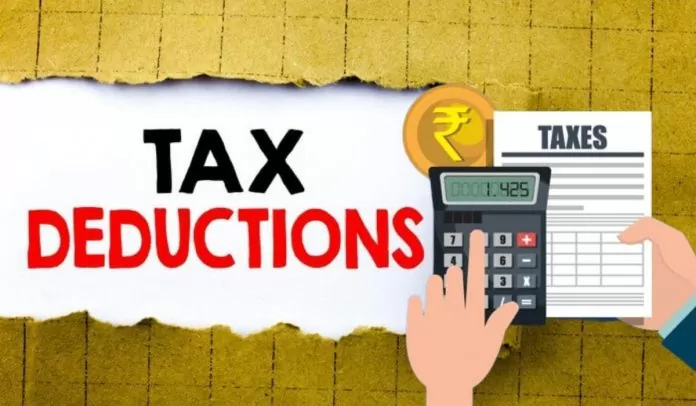
Senior Citizens Save ITR: The income tax reporting season for the financial year 2024 and assessment year 2024-2025 has already begun. Nevertheless, senior citizens get significant tax exemptions under the income tax rules. To be eligible for these benefits the person must be 60 years of age or above, but must not exceed 80 years at any time during the year.
Senior or super senior citizens earning more than the exemption amount still have to pay tax even though they are not required to file income tax returns (ITR). The exemption does not cover the actual tax liability; it applies only to filing returns.
Pension income, along with income from other sources, is primarily liable for taxes. But keep in mind that government commuted pension income – that is, income that is payable immediately in lump sum – is completely exempt from all taxes. Uncommuted pension income is subject to the relevant marginal slab rates and is taxable under the head “Salary”.
Taxation on pension income received from private businesses falls under the “Salaries” category, and relevant tax rates are applicable.
High exemption limit
Investments in tax savings made till March 31, 2024 will be included in the income tax return for the financial year 2023-2024. Benefits such as Section 80C for interest income and health insurance premium have been abolished under the new tax law. Many sectors still have benefits from the previous system.
Senior citizens wishing to pay their tax obligations should first focus on their income sources. Take into account all your income sources including your salary, pension, fixed deposit income, interest from savings accounts, rent from rental properties, capital gains from investments, etc.
Suppose a person's total income is below a certain limit (₹5 lakh in the previous tax regime and ₹7 lakh in the current tax regime). In that case, they are also eligible for tax exemption under Section 87A of the Income Tax Act. The exemption will be equal to ₹12,500 (or, in case of the new tax regime, ₹25,000), less the actual tax amount.
Senior citizens get higher deduction limits and exemption benefits than younger taxpayers. The primary difference is in the basic exemption limit, which refers to the maximum amount exempted from taxes. For example, the maximum limit for older adults (aged 60-80 years) is currently ₹3 lakh, while the maximum limit for young adults (aged ₹2.5 lakh) is ₹2.5 lakh.
This higher exemption level directly reduces their taxable income. Taxable income is the total income minus the exemption limit and any relevant deductions. A higher exemption level means that a larger portion of their income is not subject to taxes.
Higher deductions available for senior citizens
Similarly, further reductions are possible.
Section 80D: Senior citizens who may have high medical expenses should avail premium deduction for health insurance. Compared to younger taxpayers, they are eligible for higher deduction limits under Section 80D.
Section 80TTB: Up to a certain amount, interest income from deposits may be deductible under this section. This can be especially helpful for senior citizens, who typically rely on interest income from savings accounts and fixed deposits.
Section 80C: This section allows deductions on investments made in various tax-saving options. Senior citizens can take advantage of this by investing in schemes such as Senior Citizen Savings Scheme (SCSS), which offer competitive interest rates and are eligible for Section 80C deduction.
The taxable income of senior citizens is calculated by taking their total income and subtracting the applicable exemptions and deductions from it. This gives their taxable income. Below is a summary of the process:
Phase 1: Calculate the total income. This includes the income the senior citizen receives from the following sources:
Pension Income
Interest earned on investments such as savings accounts and fixed deposits
Revenue from sources other than rental income (business revenue, capital gains, etc.)
Phase 2: Avail available deductions. There are several deductions available to senior citizens under various sections of the Income Tax Act. Some of the common deductions are as follows:
Section 80D: Premium deduction for health insurance (usually with higher limits for senior citizens)
Section 80TTB: Interest income received from deposits is deductible, up to the pre-determined maximum limit.
Section 80C: Investment deductions for various tax-saving strategies, such as beneficial SCSS.
step 3: Senior citizens enjoy a higher basic exemption level as compared to younger taxpayers.
The current exemption limit for senior citizens (aged 60 to 80 years) is ₹3 lakh.
Older people (aged 80 years and above) are eligible for even higher exemption limit (currently ₹5 lakh).
step 4: Calculate your taxable income.
Deduct appropriate deductions claimed under various sections (e.g., 80D, 80TTB, and 80C) from the total income (Step 1).
Use the exemption limit (Rs 3 lakh or Rs 5 lakh) depending on the age of the senior citizen.
If the balance amount after deduction exceeds the exemption limit then it is taxable income.
 look news india
look news india


